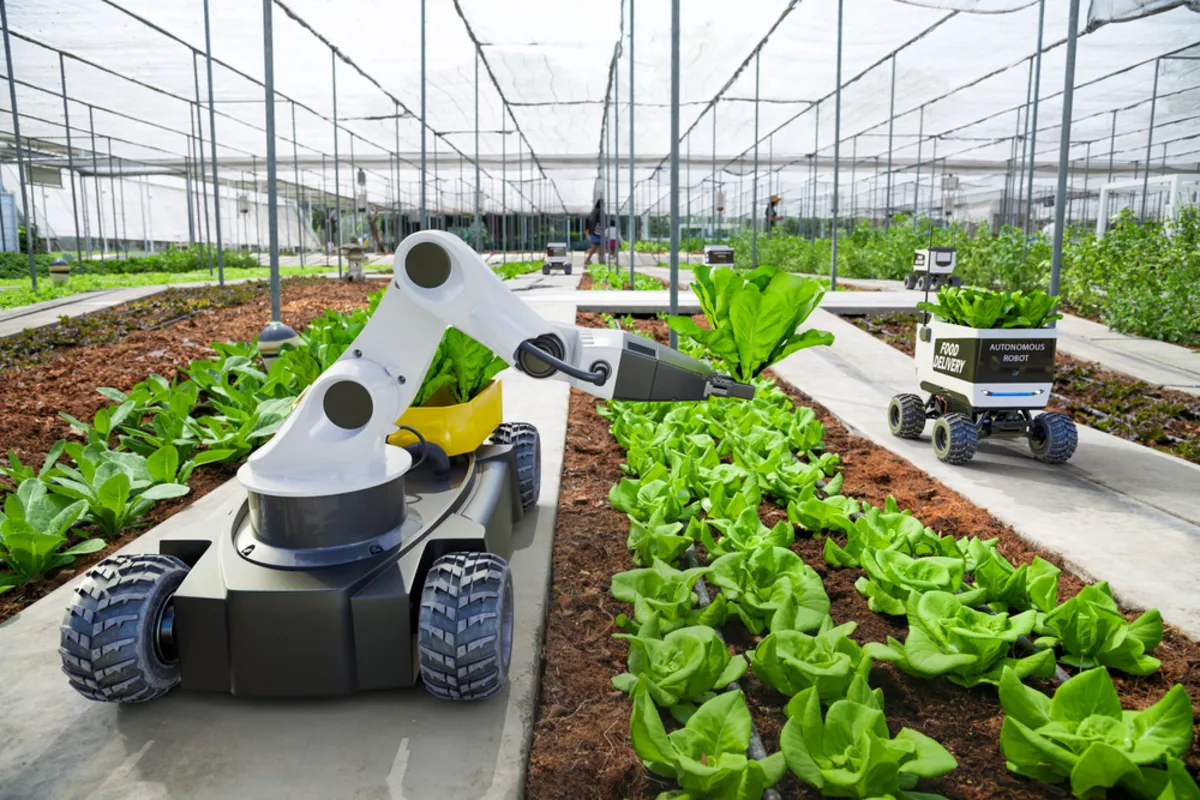
photo: ET Edge Insights
Kyrgyz Deputy Minister of Water Resources, Agriculture, and Processing Industry Asel Kenenbaeva has announced that Kyrgyzstan is embarking on an initiative to modernize its agriculture sector by introducing a “smart farm” concept.
The program is being developed jointly with Korean consultants, The Caspian Post reports via Kyrgyz media.
Two Pilot Projects Selected
Two pilot farms have been designated to explore and demonstrate the smart agriculture model:
One in livestock farming, using technology such as camera-based systems to estimate the weight of animals without the need for physical weighing.
The other in horticulture, where automation will cover tasks like environmental monitoring, feeding schedules, and crop care.
These pilots will integrate hardware and software systems-such as sensors and automated monitoring tools-to track critical indicators: animal health, feeding times, milk yield, and more, all accessible via remote tools like smartphones.
Why the Shift Toward Automation
Traditional farming practices in Kyrgyzstan are highly labor-intensive and often inefficient. Kenenbaeva pointed out that farmers are increasingly ready to adopt new technologies to reduce workloads and increase productivity.
Technologies introduced under the smart farm concept will include:
Remote surveillance and monitoring of reproduction, pregnancy, and health status of breeding stock
Real-time feed management and milk production tracking
Reduced necessity for manual labor in tasks such as weighing and health checks of livestock
Broader Context: Agricultural Innovation in Kyrgyzstan
This smart farm initiative aligns with broader trends in Kyrgyzstan aimed at adopting modern agricultural technologies. For example:
The country is building nine “smart greenhouses” to improve vegetable seed production, reduce reliance on imports, and strengthen breeding infrastructure.
There is ongoing cooperation with Korean companies in organic and smart agriculture, including farmer training and technology transfer.
What This Means Going Forward
The pilot projects are expected to act as models for precision agriculture across Kyrgyzstan, assisting establish standards and best practices. If successful, they could pave the way for wider adoption of automated, tech-driven farming, boosting productivity, sustainability, and farmers’ incomes.
In sum, the smart farm project represents a major step toward upgrading Kyrgyzstan’s agricultural sector-leveraging automation and technology to address long-standing challenges, while fostering international collaboration with Korea.
Share on social media